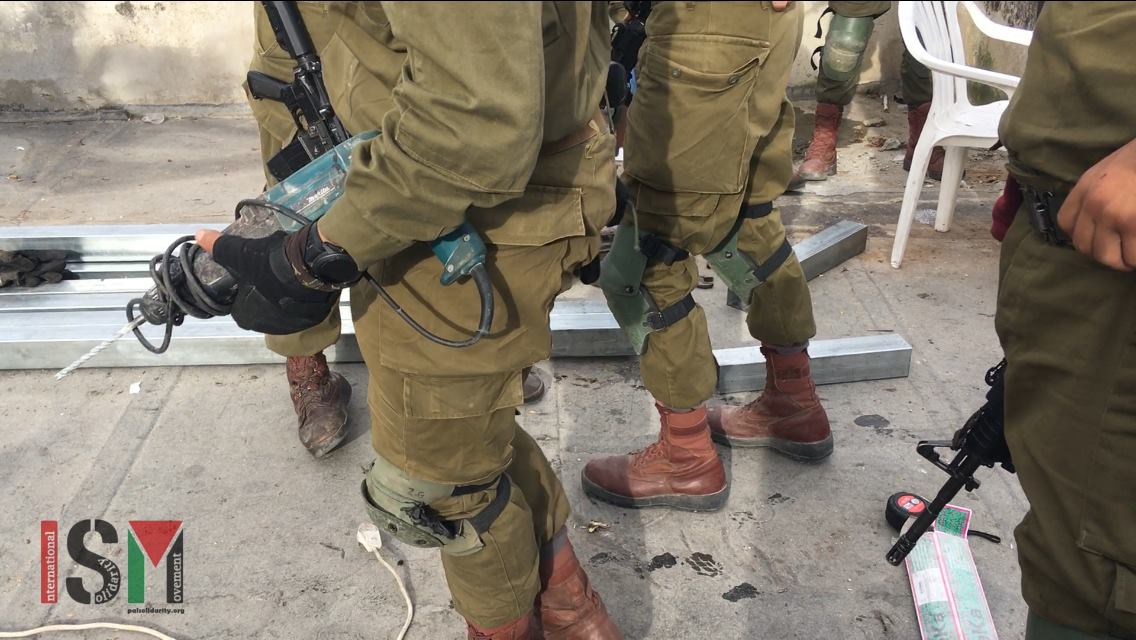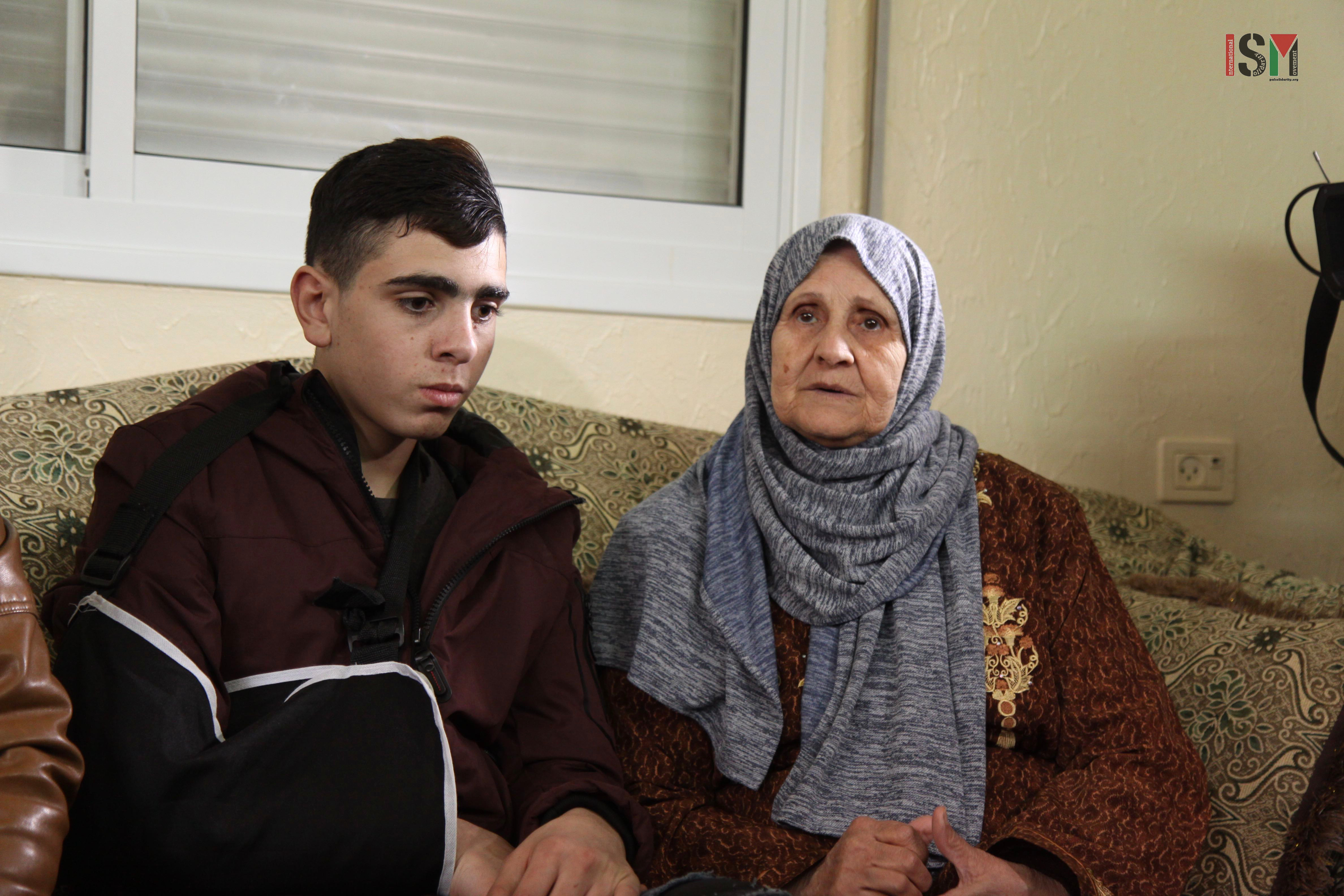Tag: Hebron
-
Israeli soldiers order Palestinian family to halt approved rooftop construction
18th February 2018 | International Solidarity Movement, Khalil team | Occupied Palestine Last weekend, the Sharabati family that lives on Shuada street in Al Khalil were hard at work constructing a metal frame for a roof covering on top of their house which is overlooked by an illegal settlement. Settlers arrived at a gate adjacent…
-
Night Demonstration in Al-Khalil, Hebron
9th January 2018 | International Solidarity Movement, al-Khalil team | al-Khalil, Hebron, occupied Palestine A protest and march against the occupation of Palestine took place in al-Khalil tonight. Protestors gathered at Dawar Ibn Roojd before marching with lit torches at dusk to checkpoint 56 in Shuhada Street. The action was organized by Dismantle the Ghetto,…
-
Fawzi Al Junaidi Released
28th December 2017 | International Solidarity Movement, al-Khalil team | al-Khalil, Hebron, occupied Palestine International Solidarity Movement visited the family home of Fawzi Al Junaidi who was released after his family paid a 10,000 shekel bail on Wednesday Fawzi returned back to his family home after a checkup at hospital. The iconic photo of a…



